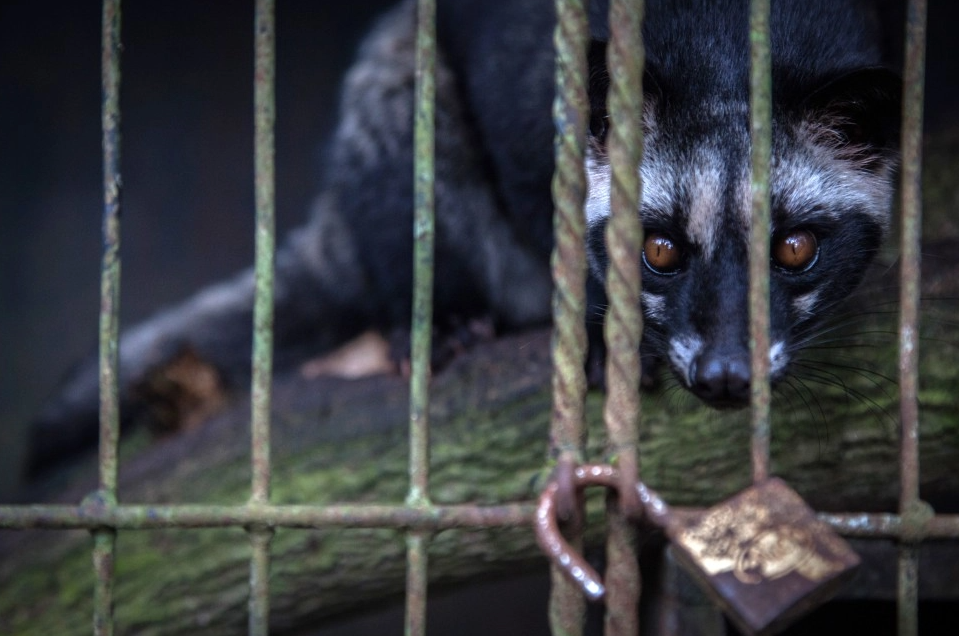Civet coffee is sold as a luxury product, but we’re campaigning to transform this industry – which causes huge suffering to civets in South East Asia
Civet coffee: campaigning for cage-free
Civet coffee is sold as a luxury product, but we’re campaigning to transform this industry – which causes huge suffering to civets in South East Asia
To fuel the growing demand for civet coffee, civets are being captured using box traps, snares and hunting dogs. These methods frequently cause injuries. Many civets are then sold to civet ‘farm’ owners. Others are moved to noisy, bustling wildlife markets.
After being sold, the civets are forced to live in small, bare cages, often without enough shelter or bedding. Many show signs of great stress – pacing or harming themselves. Fed a poor diet in terrible conditions, many animals die early or show signs of injuries.
What is civet coffee?
Civets are small, nocturnal mammals, native to tropical Asia and Africa. The coffee they help to create – by eating and excreting coffee beans, which are then collected and cleaned – has become increasingly popular. But, to keep up with rising demand, civets are now being cruelly captured and forced to live in inhumane conditions. So we’re pushing suppliers to only stock wild-sourced, ‘cage-free’ civet coffee.
Civets are frequently injured during capture and experience extreme stress when handled by humans

Civet coffee: the solution
Wild-sourced, cage-free coffee is the only humane option. It allows wild civets to live in their natural habitat, and means rural communities can generate a small income by collecting and selling the coffee beans excreted by civets.
And connoisseurs want this high-quality, natural product – not the inferior, cruel, caged product, which misleads consumers and undermines this traditional industry.
What we’re doing
We’re campaigning to stop the supply of caged civet coffee – and momentum is growing. We began by asking retailers in Canada, Denmark, the Netherlands, Sweden and the UK to investigate their supply chains and stop selling civet coffee if they could not guarantee it was wild-sourced.
At least 13 retailers – including big names like Harrods and Selfridges in the UK and Simon Lévelt in the Netherlands – took civet coffee off their shelves or agreed to investigate.
Changing the coffee industry
We’re now working with coffee certification bodies and supporting coffee industry efforts to respond to our campaign. We’re talking to UTZ Certified and the Rainforest Alliance to explore how certified coffee producers can avoid involvement with caged civet coffee production. And we’re also working with these organisations to introduce animal welfare standards into their codes of practice.
